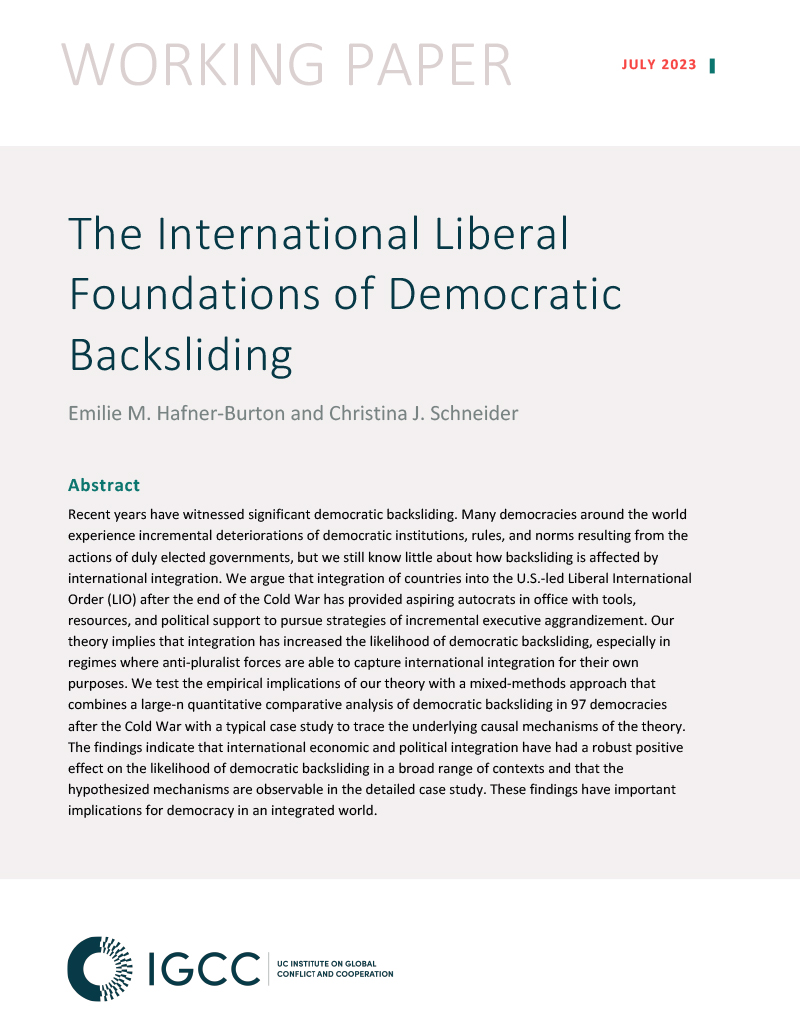The International Liberal Foundations of Democratic Backsliding

In this working paper, Emilie Hafner-Burton and Christina Schneider, co-directors of IGCC’s Future of Democracy initiative, find that integration of newly democratized and hybrid regimes into the U.S.-led liberal international order after the end of the Cold War provides aspiring autocrats with the tools, resources, and support to weaken accountability institutions and affirm anti-pluralist forces in government positions, contributing to democratic backsliding.
DownloadRecent years have witnessed significant democratic backsliding. Many democracies around the world experience incremental deteriorations of democratic institutions, rules, and norms resulting from the actions of duly elected governments, but we still know little about how backsliding is affected by international integration. We argue that integration of countries into the U.S.-led Liberal International Order (LIO) after the end of the Cold War has provided aspiring autocrats in office with tools, resources, and political support to pursue strategies of incremental executive aggrandizement. Our theory implies that integration has increased the likelihood of democratic backsliding, especially in regimes where anti-pluralist forces are able to capture international integration for their own purposes. We test the empirical implications of our theory with a mixed-methods approach that combines a large-n quantitative comparative analysis of democratic backsliding in 97 democracies after the Cold War with a typical case study to trace the underlying causal mechanisms of the theory. The findings indicate that international economic and political integration have had a robust positive effect on the likelihood of democratic backsliding in a broad range of contexts and that the hypothesized mechanisms are observable in the detailed case study. These findings have important implications for democracy in an integrated world.
Thumbnail credit: European Council President